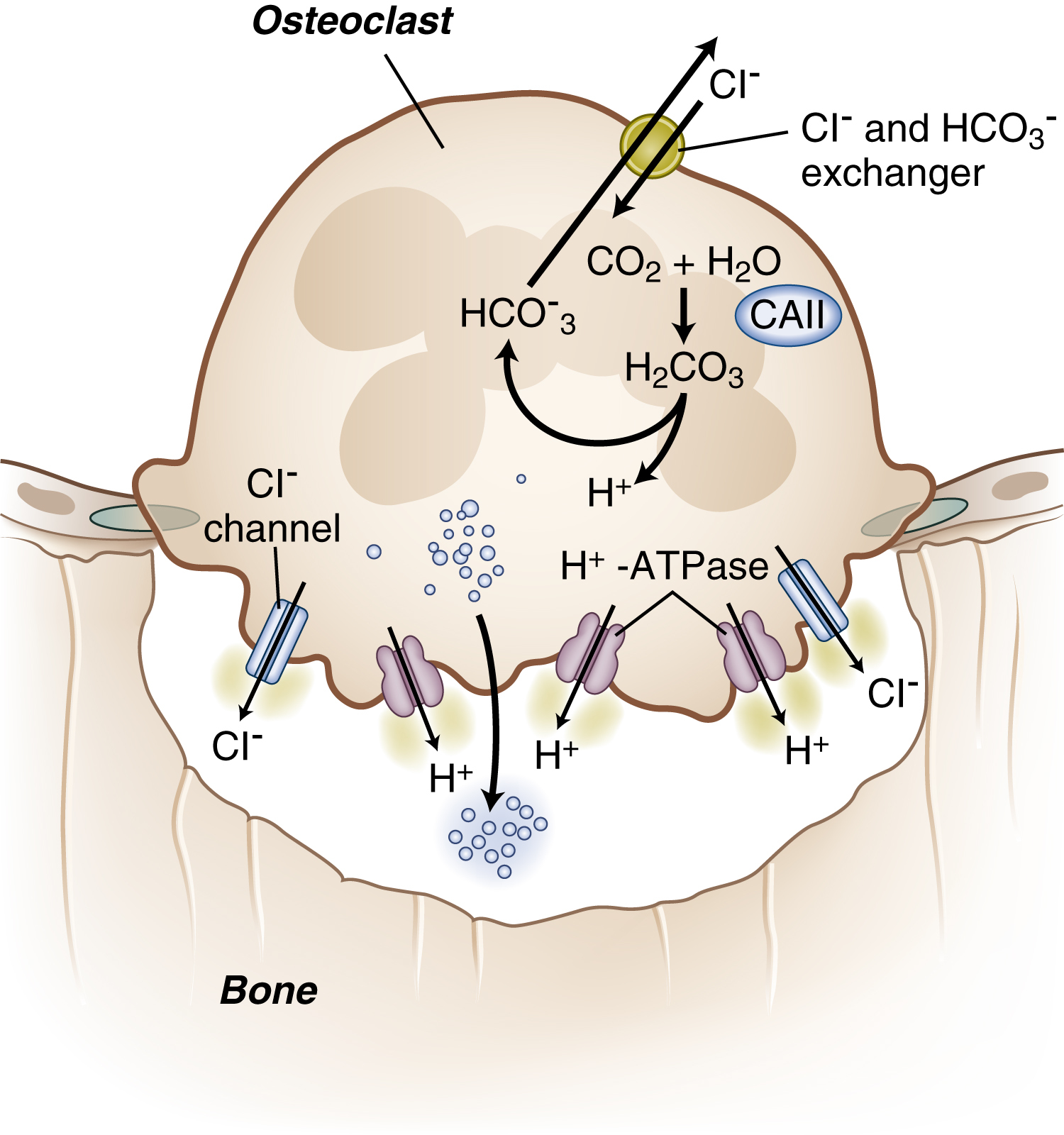osteoclast /os″tē·əklast′/ [Gk, osteon + klasis, breaking] , 1. a large type of multinucleated bone cell with a large amount of acidophilic cytoplasm that functions to absorb and remove osseous tissue. During bone healing of fractures, or during certain disease processes, osteoclasts excavate passages through the surrounding tissue by enzymatic action. Osteoclasts become activated in the presence of parathyroid hormone and also in a lymphokine substance produced by lymphocytes in such diseases as multiple myeloma and malignant lymphomas. Also called osteophage. See also ossification. 2. a surgical instrument used in the fracturing or refracturing of bones for therapeutic purposes, such as correction of a deformity.

